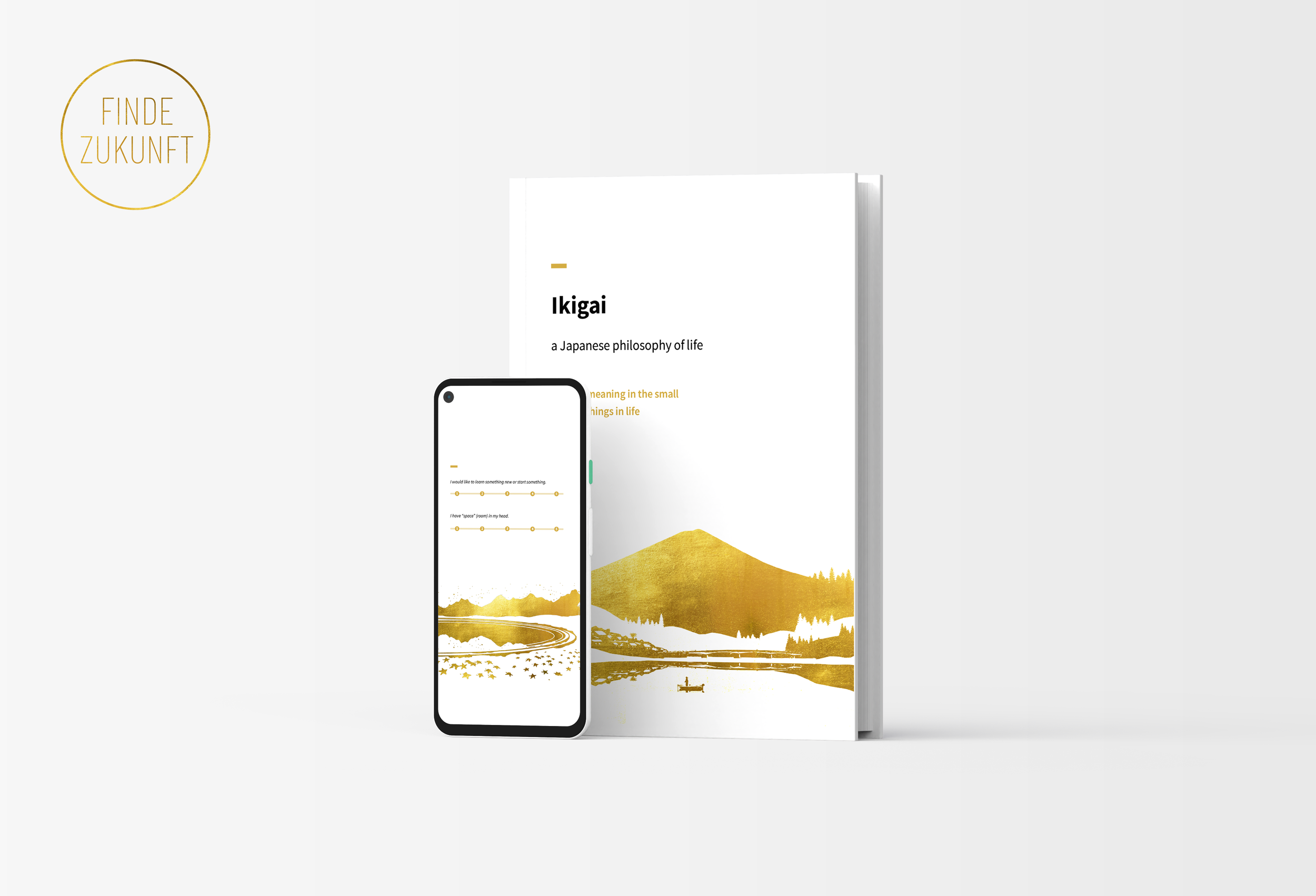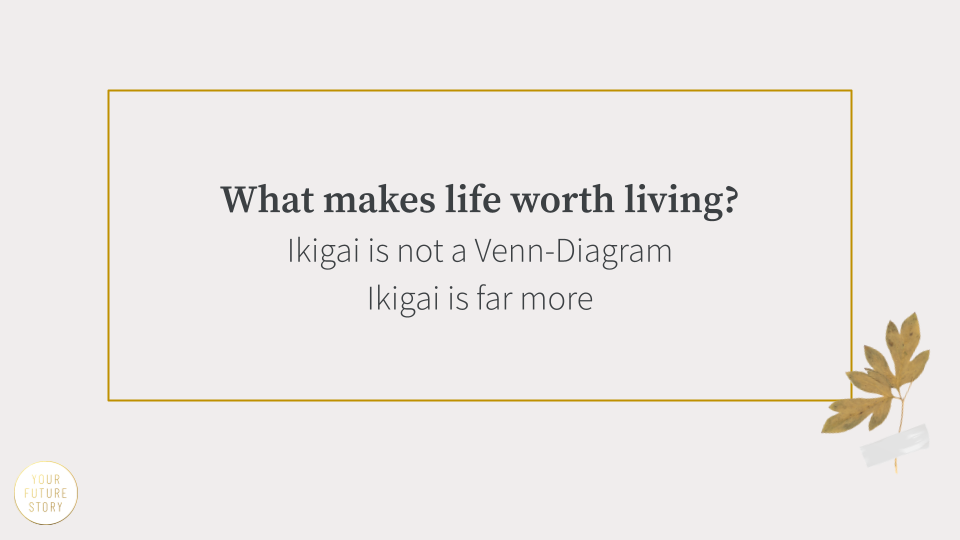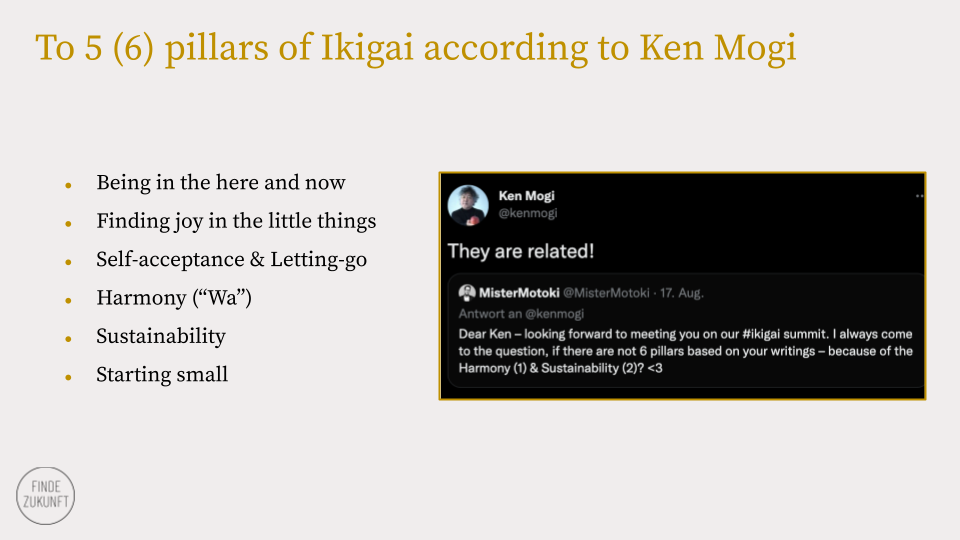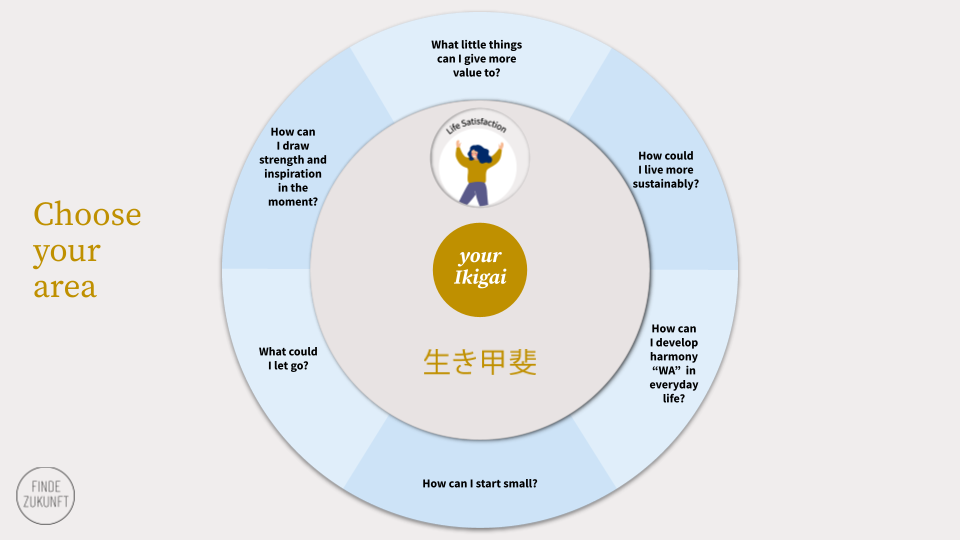Our Ikigai Course is available in English
Welcome! Let’s dive into the true essence of Ikigai, a concept that is often misconstrued in today's vast sea of literature. The mainstream interpretation of Ikigai, characterized by the widely recognized "four circles" model, asks us to consider what we love, what we are good at, what the world needs, and what we can be paid for. While these questions serve as a useful framework for career planning, they only touch the surface of the profound and nuanced philosophy of Ikigai.
True Ikigai goes beyond professional aspirations, encouraging us to find joy and meaning in the simplicity of daily life. This authentic understanding, which is represented by a scant 1% of all global materials on the subject, urges us to appreciate and find purpose in the ordinary, transcending the conventional emphasis on financial success.
Our online course is dedicated to exploring this deeper, more authentic interpretation of Ikigai, inspired by the foundational work of Mieko Kamiya, a pioneer in the field of Ikigai Psychology. Kamiya's seminal contributions, initially only available in Japanese, have been painstakingly translated by our team to bring her invaluable insights to a wider audience. Kamiya was not only well-versed in Japanese philosophy but also deeply influenced by Western psychological principles, particularly Viktor Frankl's Logotherapy.
Logotherapy, or the therapy of meaning, posits that the primary motivational force of an individual is to find meaning in life. Mieko Kamiya integrated this concept with the traditional Japanese notion of Ikigai, thus forging a unique approach to discovering life's purpose. This synergy between Logotherapy and Ikigai provides a robust framework for understanding how we can navigate life's challenges by finding meaning in even the most difficult circumstances.
We invite you to join us on this enriching journey to uncover your Ikigai, supported by a curriculum that not only educates but also inspires. Whether you are a coach, counselor, or someone on a personal quest for meaning, our course offers a comprehensive guide to finding enduring satisfaction and purpose in life. Dive into the authentic world of Ikigai with us and discover how to live a life truly worth living.
Expanding on the intricate relationship between Logotherapy and Ikigai, particularly through the lens of Mieko Kamiya's work, offers a fascinating exploration of how these two philosophies converge to guide individuals toward a meaningful existence. Logotherapy, developed by Viktor Frankl, emphasizes the search for life's meaning as the central human motivational force. Frankl believed that even in the most unbearable situations, life holds a potential meaning, waiting to be discovered by the individual.
Mieko Kamiya, a distinguished Japanese psychiatrist, introduced the concept of "Ikigai-kan," which translates to a sense of Ikigai or a feeling that life is worth living. Kamiya's interpretation of Ikigai extends beyond the simple pleasure of daily activities, intertwining with Logotherapy's core principle that finding meaning in life is crucial for psychological well-being.
Kamiya's work suggests that Ikigai is not a static state but a dynamic pursuit. It involves an ongoing, personal quest to find what truly matters to us, which in turn, contributes to a sense of fulfillment and joy. This aligns with Logotherapy's notion that the will to find meaning is what ultimately drives human beings, even in the face of adversity.
Ikigai and Logotherapy
The connection between Logotherapy and Ikigai becomes particularly evident in Kamiya's discussion of "Ikigai-kan." This concept embodies the idea that even when faced with challenges, individuals can experience profound satisfaction and purpose by aligning their actions with what they deem truly valuable and meaningful. It's about perceiving one's life as inherently valuable and finding reasons to embrace the joys and challenges it presents.
In practice, this synthesis of Logotherapy and Ikigai encourages individuals to reflect on their life's direction and the values that guide their choices. It prompts questions like, "What is it that makes my life meaningful?" "How do my daily activities connect to my deeper values?" and "How can I contribute to the world in a way that aligns with my sense of purpose?" Through such reflection, individuals can discover their unique Ikigai, leading to a life marked by a deep sense of fulfillment and resilience.
Mieko Kamiya's pioneering work on Ikigai and Ikigai-kan offers a profound framework for understanding how to navigate life's complexities with grace and purpose. By integrating the principles of Logotherapy, Kamiya provides a roadmap for individuals seeking to uncover their life's meaning, thus fostering a life rich in contentment, purpose, and a resilient sense of Ikigai.
All packed FOR YOU into one IKIGAI Course
In our comprehensive course, we have meticulously woven together the profound insights from Miako Kamiya's Ikigai-kan and Viktor Frankl's Logotherapy with Ken Mogi's Five Pillars of Ikigai to create a holistic Ikigai Framework. This framework is designed to guide individuals, whether coaches, practitioners, or anyone seeking deeper meaning in life, on how to integrate the principles of Ikigai into their daily existence.
SIX IKIGAI Questions for your daily IKIGAI practice
In collaboration with Ken Mogi, we have refined the Ikigai framework to delineate Harmony and Sustainability as two distinct pillars, thereby expanding the foundational elements to six. This enhanced framework is instrumental in our course, providing a comprehensive approach to discovering and nurturing Ikigai in daily life. Below are the six pillars, along with six corresponding questions designed to foster Ikigai in everyone's daily lives:
Starting Small
Question: What small step can I take today that aligns with my passions or goals, no matter how modest it might seem?
Releasing Yourself
Question: How can I express my true self and passions more freely in my daily activities, embracing my authenticity without fear of judgment?
Harmony
Question: In what ways can I contribute to a sense of harmony in my relationships and community, ensuring that my actions promote peace and collective well-being?
Sustainability
Question: How can I make my pursuit of Ikigai sustainable, ensuring that my actions today do not compromise my or others' ability to pursue happiness and meaning in the future?
The Joy of Little Things
Question: What simple pleasures or moments of joy can I acknowledge and appreciate today, recognizing the beauty in the ordinary?
Being in the Here and Now
Question: How can I more fully engage with the present moment, cultivating mindfulness and presence in my daily tasks and interactions?
These six questions are integral to our Ikigai course, guiding participants through a reflective and actionable journey towards discovering and embracing their Ikigai. By contemplating and responding to these questions regularly, individuals can develop a deeper understanding of their values, passions, and purpose, leading to a more fulfilling and meaningful life. Our course is designed to be interactive and introspective, providing tools, exercises, and discussions that help embed these principles into one's everyday life, whether as a coach, practitioner, or anyone seeking personal growth and fulfillment.




